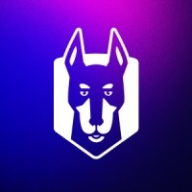

GitLab and Snyk compete in the devops and application security category, respectively. GitLab has the advantage in comprehensive features and DevOps flexibility, while Snyk stands out in security and vulnerability management.
Features: GitLab offers seamless CI/CD pipeline management, robust code review systems, and excellent branch management for collaborative development. Snyk provides best-in-class vulnerability scanning, integration capabilities with platforms like Slack, and continuous security monitoring.
Room for Improvement: GitLab could enhance integration with non-Kubernetes environments, improve project management features, and better integrate with AWS and Jira. Snyk needs broader language support, more refined notification systems, and extended SAST and DAST capabilities for thorough security scanning.
Ease of Deployment and Customer Service: GitLab supports diverse deployment environments, though its customer service can be slow. Snyk is easy to deploy with comprehensive documentation but could benefit from improved technical support.
Pricing and ROI: GitLab offers a free tier and various pricing options though higher tiers can be expensive. Snyk, seen as costly, provides strong ROI over time through effective security features and licensing that supports scaling.
Migrating to GitLab is bringing time-saving benefits, and everything is easier to automate.
We have saved time significantly, reducing deployment time from four hours to five minutes per deployment.
I can see that Snyk saves the costs of hiring security developers for vulnerability scanning and security checks, as that responsibility is now managed by Snyk.
We have rarely needed to escalate issues to technical support since GitLab usually runs seamlessly.
I have interacted with architects for some advice during the implementation, and they were prompt in their response.
I have had meetings where they taught me, explained things, and provided guidance for starting from scratch.
Our long-standing association has ensured smooth communication, resulting in favorable support experiences and satisfactory issue resolution.
Their response time aligns with their SLA commitments.
We could understand the implementation of the product and other features without the need for human interaction.
It has all the features required for our coding and deployment needs, which makes it scalable to our changing requirements.
We're transitioning to OpenShift for future scalability with increased user numbers.
For scaling, other deployment options from GitLab's side need to be adopted.
Snyk allows for scaling across large organizations, accommodating tens of thousands of applications and over 60,000 repositories.
Snyk is very scalable and can handle my organization's growth and changing needs.
I have not encountered any performance or stability issues with GitLab so far.
The updates are frequent and demanding, happening at least once a week due to security reasons.
We raised a request with GitLab support, but they were unable to help because they could not find the root cause of what went wrong.
It would be beneficial to have a user-friendly interface for setting up these configurations, instead of just writing YAML files.
It is essential to conduct proper testing, such as unit tests and code coverage, within the SDLC pipelines.
GitLab can improve its user interface to make conflict resolution more user-friendly.
It lacks the ability to select branches on its Web UI, forcing users to rely on CLI or CI/CD for that functionality.
The inclusion of AI to remove false positives would be beneficial.
As we are moving toward GenAI, we expect Snyk to leverage AI features to improve code scanning findings.
Even when working in other small organizations, we opted for GitLab as it was cost-efficient.
The pricing of GitLab is reasonable, aligning with what I consider to be average compared to competitors.
The price is high, and it limits user accessibility.
Snyk is recognized as the cheapest option we have evaluated.
After negotiations, we received a special package with a good price point.
Snyk is less expensive.
As we implement automated testing and DevSecOps, it speeds up the process by forty to sixty percent.
The Ultimate version offers enhanced features for security scanning through DAST and SAST analysis, which have greatly benefitted our project workflow.
By integrating GitLab as a DevOps platform, we have enhanced agility, improved our time to market, and different teams can work collaboratively on various projects.
Our integration of Snyk into GitHub allows us to automatically scan codebases and identify issues, which has improved efficiency.
Snyk helps detect vulnerabilities before code moves to production, allowing for integration with DevOps and providing a shift-left advantage by identifying and fixing bugs before deployment.
Snyk has positively impacted my organization by improving the security posture across all software repositories, resulting in fewer critical vulnerabilities, more confidence in overall product security, and faster security compliance for project clients.
| Product | Market Share (%) |
|---|---|
| Snyk | 6.1% |
| GitLab | 2.3% |
| Other | 91.6% |


| Company Size | Count |
|---|---|
| Small Business | 36 |
| Midsize Enterprise | 10 |
| Large Enterprise | 43 |
| Company Size | Count |
|---|---|
| Small Business | 21 |
| Midsize Enterprise | 9 |
| Large Enterprise | 21 |
GitLab offers a secure and user-friendly platform for CI/CD pipeline management, code repository control, and collaboration, enhancing development speed and efficiency. It facilitates automation with extensive customization and tool integration, ideal for DevOps processes.
GitLab supports source code management, version control, and collaborative development. It's frequently used in CI/CD processes to automate builds and deployments while integrating DevOps practices. GitLab allows companies to manage repositories, automate pipelines, conduct code reviews, and maintain development lifecycles. The platform supports infrastructure and configuration management, enabling efficient code collaboration, deployment automation, and comprehensive repository handling. Many organizations commit and deploy developed code using GitLab's capabilities.
What are GitLab's most valuable features?In specific industries, GitLab serves as a backbone for source code management and CI/CD implementation. Companies leverage its capabilities for infrastructure management and deployment automation, thus streamlining project delivery timelines. Its ability to handle configuration management and code repositories effectively aids in maintaining development lifecycles, making it a preferred choice for organizations committed to enhancing their DevOps practices.
Snyk excels in integrating security within the development lifecycle, providing teams with an AI Trust Platform that combines speed with security efficiency, ensuring robust AI application development.
Snyk empowers developers with AI-ready engines offering broad coverage, accuracy, and speed essential for modern development. With AI-powered visibility and security, Snyk allows proactive threat prevention and swift threat remediation. The platform supports shifts toward LLM engineering and AI code analysis, enhancing security and development productivity. Snyk collaborates with GenAI coding assistants for improved productivity and AI application threat management. Platform extensibility supports evolving standards with API access and native integrations, ensuring comprehensive and seamless security embedding in development tools.
What are Snyk's standout features?Industries leverage Snyk for security in CI/CD pipelines by automating checks for dependency vulnerabilities and managing open-source licenses. Its Docker and Kubernetes scanning capabilities enhance container security, supporting a proactive security approach. Integrations with platforms like GitHub and Azure DevOps optimize implementation across diverse software environments.
We monitor all Application Security Tools reviews to prevent fraudulent reviews and keep review quality high. We do not post reviews by company employees or direct competitors. We validate each review for authenticity via cross-reference with LinkedIn, and personal follow-up with the reviewer when necessary.